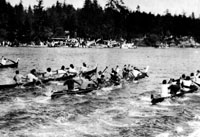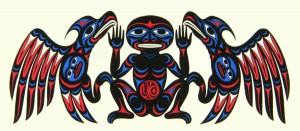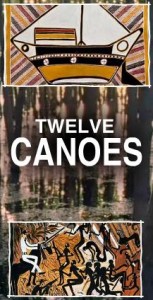Posts from — October 2010
12 Canoes
I found this site that is to educate people about the Yolngu people of Ramingining in Australia’s Northern Territory. The website is a great use of technology and educating others. They have provided a study guide for teachers and students. It is quite interactive and divides up the culture so that you can explore the art, music, the people, etc. It shows what is important to the people in a very easy to follow way.
October 11, 2010 No Comments
Maori Spellchecker
I thought this was quite interesting, especially considering the discussions we’ve had with regard to technology and cultural neutrality. Turns out somebody in New Zeland has the very same conserns when it comes to language bias. Be great to see something like this developed for Canadian First Nations languages. Or perhaps there already is and I am simply unaware of it. It seems like a pretty good business idea, don’t you think?
October 10, 2010 No Comments
kirk/mod2
http://www.indigenousfoodsystems.org/
This is an interactive website where people can share information, stories, recipes in regards to food security. Food security is becoming concern for all peoples. More and more community gardens are being started in Vancouver. UBC farms is a good example. They various participants from Musqueam First Nation to a garden section designated to residents from the downtown Eastside. For anyone interested in learning more about Food sovereignty this is a good website.
Working Group on Indigenous Food Sovereignty
The Working Group on Indigenous Food Sovereignty (WGIFS) was born in March of 2006 out of a recognized need to carry the Indigenous voice in the various meetings, conferences and discussions that have taken place within the food security movement. Through participation in the B.C. Food Systems Network Annual Gathering and strategic planning meetings, the WGIFS was created for the purpose of increasing awareness of the underlying issues, concerns and strategies impacting food security in Indigenous communities. The WGIFS seeks to apply culturally appropriate protocols and ancient ways of knowing through a consensus-based approach to critically analyzing issues, concerns and strategies as they relate to Indigenous food, land, culture, health, economics, and sustainability.
October 8, 2010 No Comments
kirk/mod2
http://www.virtualmuseum.ca/Exhibitions/Traditions/English/history_games.html
 This website was created with funds from Indian and Northern Affairs Canada. It looks at the history of the Indigenous games. It has some good resources that could be used in a class. Detailed history about traditional games/sports of Indigenous peoples in Canada. A worthwhile look!
This website was created with funds from Indian and Northern Affairs Canada. It looks at the history of the Indigenous games. It has some good resources that could be used in a class. Detailed history about traditional games/sports of Indigenous peoples in Canada. A worthwhile look!
October 8, 2010 No Comments
kirk/mod2
http://www.sfu.museum/time/en/panoramas/long-tool
The Salmon Story
When the Creator was still creating Mother Earth, there were a lot of things we have today that were not here at the beginning. For food we had a lot of meat. There were deer, elk, bear but when you eat meat you always have a heavy feeling in your stomach. You feel weighted down. Our people prayed to the Creator for something different, something lighter. The Creator spoke to a Siam and gave him instructions. “You make a dip net and go to the river. There you will see something swimming in the river, these are salmon. Dip one out and roast it by the fire. Share this food with your people. Then gather up all the salmon bones, place them on cedar bark and return them to the river. The river will take the bones back to the salmon people who live in the Sea. If you don’t show your respect in this way, not many salmon will return to the river. You have to give thanks to the Salmon People for sending their children up the river to feed us.”
This is how the Creator gave us the salmon.
Told by Ed Leon, Chehalis. Retold by Frank Malloway.
This is just one example of the rich culture that is presented on this website. The website has a wide range of resources, from games, audio, video. This website was done in partnership with SFU and Xá:ytem Longhouse in Mission which is part of the Sto:lo peoples territory.
October 8, 2010 No Comments
Kirk/Mod2
 http://web.uvic.ca/hrd/hulq/index.htm
http://web.uvic.ca/hrd/hulq/index.htm
This website was created by the University Of Victoria. It is an introduction to Hul’q’umi’num’ which is one of the Coast Salish languages. The website has a variety of exercises to assist learners with the language. It is a good example of using how technology can be used to assist in preserving a language and teaching a language. Many Elders are passing on and they would traditionally played a significant role in teaching a language. Also many First Nations live away from their home community so using a website like this assists in keeping our languages alive.
October 8, 2010 No Comments
Landmark accord on the Education of Indigenous Peoples in Canada to be Signed at Congress 2010
I came across the attached document and found it to be of highly relevant to our current course readings. Here is an excerpt of the announcement of the accord document to be signed at Congress:
“Montreal/May 31, 2010 – A landmark agreement on the education of Indigenous peoples in Canada will be signed June 1, at the Congress of the Humanities and Social Sciences hosted by Concordia University in Montreal. The Accord on Indigenous Education provides for a new framework under which university programs will be reviewed and partnerships with Indigenous communities forged in order to better reflect the educational purposes and values of Indigenous people. It will lead to the development of teaching methods that respect –and, indeed reflect‐ the specific cultural needs and references of First Nations people.
The agreement was developed between leading representatives of First Nations communities and The Association of Canadian Deans of Education (ACDE), which is meeting at Concordia during the 2010 Congress of the Humanities and Social Sciences, continuing through June 4.”
This accord gives one hope. I’ve attached the full announcement here:
media release-Congress Indigenous Signing (3)[1]
For the full Accord document, navigate to: http://experience.congress2010.ca/wp-content/uploads/2010/05/Congress-Indigenous-Accord.pdf
October 7, 2010 No Comments
Aboriginal Stereotypes in Sports: Intentions gone horribly wrong?
http://thesportdigest.com/article/aboriginal-stereotypes-sports-intentions-gone-horribly-wrong
I thought this was an interesting article on the naming of mascots and athletic teams after aboriginal people. The marginalization and stero-typing of indigenous peoples is discussed in this article, with a look at the research into the historical context of such naming conventions. This has been a huge debate over the years, and the author examines the factors relating to this stereotyping.
October 7, 2010 No Comments
Native Nevada Classroom
http://www.unr.edu/nnap/nnc_intro.htm
“This site was developed by the Department of Teaching and Learning Technologies at the University of Nevada, Reno, as part of a statewide initiative funded by SB204.”
This site contains lesson plans, concentrating on social sciences and environmental studies. Under the Nevada Tribes tab, it has a link called Stereotyping of Native Americans. At the end of the article, it has stereotyping activities that can be done with students to educate them on the issues surrounding stereotypes and its deteremental affects.
October 7, 2010 No Comments
The Basic Indian Stereotypes
The website: http://www.bluecorncomics.com/stbasics.htm
dispels the myths of native stereotypes. What I found thought-provoking was their take on Non-Native stereotypes. There is a list (and links) of presumed Native stereotypes of non-Natives. Very interesting. There are a number of informative articles and links on related topics – it is a very good read.
October 7, 2010 No Comments


